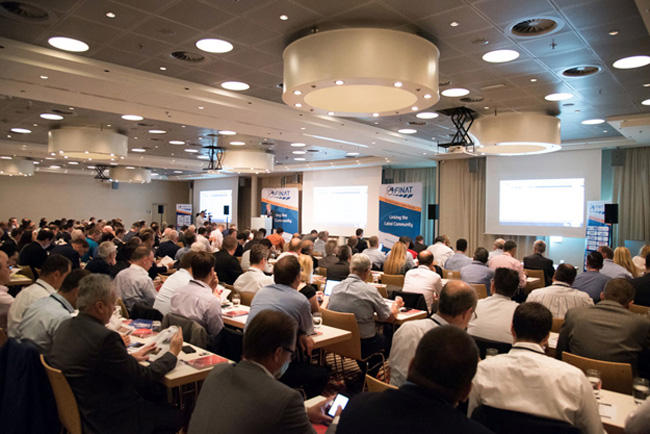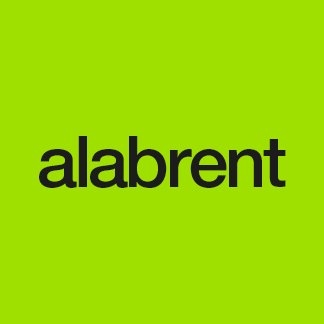Redacción Alabrent
Replacing the long-established annual FINAT congress and held in Amsterdam from 11-13 June, the FINAT European Label Forum represented all stages of the complex label value chain and placed a strong emphasis on business concerns – particularly running a profitable business in today’s economic environment. It covered a variety of disciplines, from branding and marketing to innovation, technology, manufacturing, and corporate affairs.“The definition and role of labels has changed dramatically in recent years with the advent of new product decoration technologies, from sleeves and in-mould labels to printed electronics,” explains Jules Lejeune, Managing Director of FINAT. “With a customer base of brand owners and retailers that is increasingly international, and a world of consumers who are social and online media experts, this is indeed a challenging scenario for label converters. And with the task of achieving change firmly placed on label converters, Europe’s industry association, FINAT, has both the desire and the duty to create a new informational and educational platform for its members.”
Lejeune reported that labelstock consumption in 2014 was up 5.7% year-on-year and the industry saw ‘steady and strong recovery’ since 2012 and the global economic crisis. Growth continued at 8.8% for paper labels and 7.7% for film stocks in Q1 2015 as compared to Q1 2014. He also introduced the members-only FINAT RADAR that tracks European converter, brand owner and material supplier trends; developments in conventional vs. digital press purchases; and provides a regular half-yearly benchmarking report on these topics. The most recent FINAT RADAR converter survey found that 40% of Europe’s self-adhesive label converters are already active in printing sleeve labels, with at least 20% embracing sleeves, flexible packaging, and/or in-mould labelling.
President emeritus of the European Council, Herman van Rompuy, presented on the future of business in a complex European landscape. He stated, “Interdependence is the key to a successful European Union, and to addressing many of the opportunities and challenges that face Europe as a whole, the euro itself, and the current economic situation within the Eurozone.”
Staying hungry in paradise
Retiring FINAT President Kurt Walker opened the plenary sessions. Keynote speakers included Rasmus Ankersen, bestselling author of ‘The Gold Mine Effect and ‘Hunger in Paradise’ and an international entrepreneur and speaker on performance development. He encouraged delegates to ‘think outside in’ because ‘success is not a straight line,’ and highlighted business case studies that illustrated both winners and losers, emphasising that ‘good results always come from good decisions,’ ‘performance equals potential minus interference,’ and ‘what you see is not necessarily what you get.’
Heineken senior packaging and identity design manager Ramses Dingenouts showed how a family business founded in 1860 has innovated to achieve continued success. The company invented the first green beer bottle – now available in 93 countries around the world – and still embraces new and developing technologies to promote the Heineken brand. He stated, “Pressure-sensitive labels make packaging multi-versioning possible, and that is now a core company strategy.”
The relationship between suppliers and their strategic customers was addressed by Gordon Crichton, director of the Institut du Management de l’Achat International in France. He said the previous concern for buyers was price, but now it is growth. To be successful with their clients, suppliers need to focus on taking out cost, driving innovation, and improving speed to market. They should also get closer to a strategic customer’s business, identifying and working with their key partners.
Parallel business sessions
The forum featured three in-depth parallel tracks on different business topics – sales, marketing and PR; technology and manufacturing; and management and corporate. Cindy Van Cauter, owner of the Netherlands-based shopper and trend research company Quotus Research, took the delegates on a shopping trip around the future, evaluating the new reality for labels in the new reality of retailing. As the focus of the consumer moves away from the supermarket aisles into the world of e-tailing, the role of labels is changing, she explained. QR codes and other scannable features are part of daily life; and for young people, there is a ‘blurring of offline and online.’
Lars Wallentin, a well-known veteran in brand packaging and the creator of the Packaging Sense platform discussed raising awareness of the importance of packaging – and the label – as a communications medium. He pointed out that ‘packaging is advertising – it’s talking to people!’
More label technology choices today
FINAT’s New Converting Technology Taskforce fielded two speakers on technology and manufacturing. Constantia Flexibles’ VP, marketing, and current chair of TLMI, Dan Muenzer, detailed developments in product decoration technologies that compete with mainstream self-adhesive labelling, including linerless labels, flexible packaging, refillable pouches, sleeving of all kinds, direct print, pre-glued wraps, cans, in-mould labels, personalisation, NFC, and printed electronics, as well as container developments such as paper bottles, and the many different recycling options available today.
Onno Ponfoort of global management and business consultants Berenschot spoke about the impact of 3D printing, or additive manufacturing. “Personalisation, small runs and on demand production are important features of 3D printing’s value proposition, but as I understand it, these are also unique selling points for self-adhesive label solutions,” he observed. “For this reason, the business models of the 3D printing ecosystem could also offer your industry some interesting perspectives.”
Succession planning in family businesses
Management and corporate topics were selected by FINAT’s very active Young Managers Club – Jozef Lievens, a partner in Belgian corporate law firm Eubelius, addressed five essential questions about family business succession, while Nick Mockett, a partner in corporate finance and M&A consultancy Moorgate Capital, spoke about selling the business if succession is not possible or desirable.
Delegates also participated in a hands-on lean manufacturing workshop led by Jan Mekers, owner of lean and change management consultants Richter IMA, and the event also included a supplier table top exhibition as well as the 2015 FINAT Label Competition and Recycling Awards.
The voice of the customer
The event received plaudits from attendees including Chris Ellison of OPM (Labels & Packaging) Group Ltd, who described it as “a must-attend event for entrepreneurs in the narrow-web industry”. Gavin Rittmeyer, Martin Automatic Inc, commented, ”a stellar line-up of speakers and networking opportunities”. And Filip Weymans of Xeikon described it as “a great milestone in the year”. Klaus Damberg of Synthogra, added, “The entire programme was very relevant for all converters,” and Ramon Lee, Brotech Graphics Co, Ltd said: “I got a lot of new information…most importantly, on developments – on the marketing side and the technology side, and on management skills.”
Lejeune concludes, “This event delivered on its promise to provide an expert and wide-ranging business briefing targeted at profitability and business growth. A changing end-use market profile, evolutions in print technology and access to a number of new product decoration techniques can, and will, co-exist with self-adhesive labelstocks in the label converter’s printroom.”



